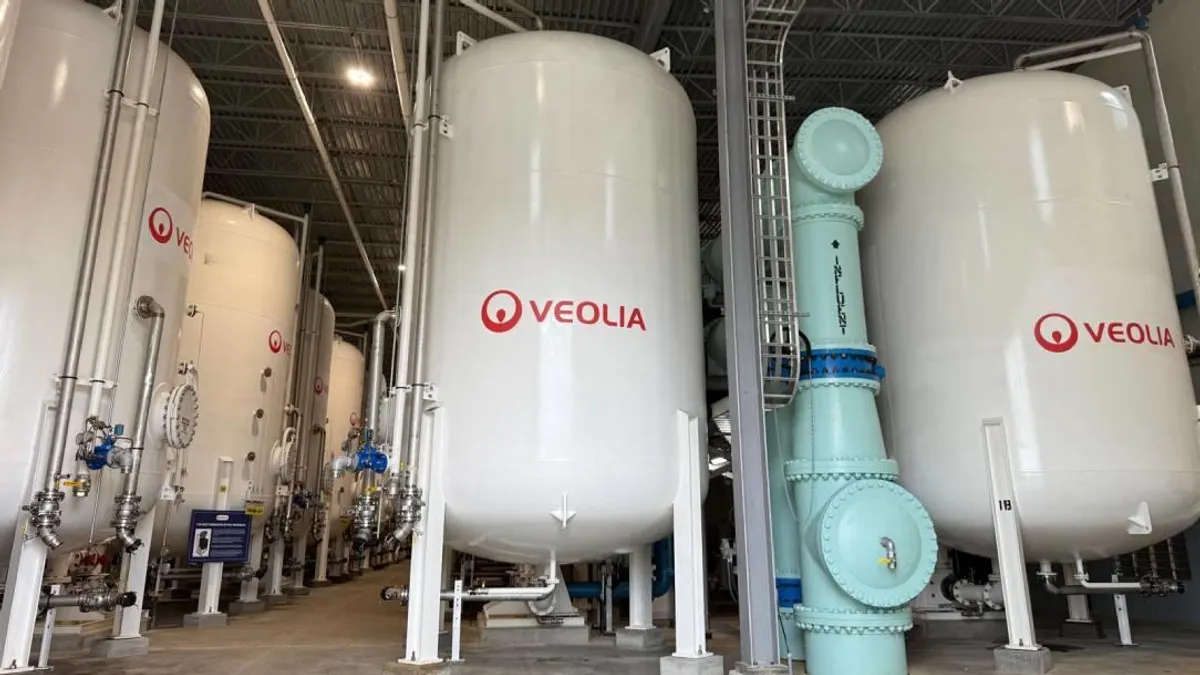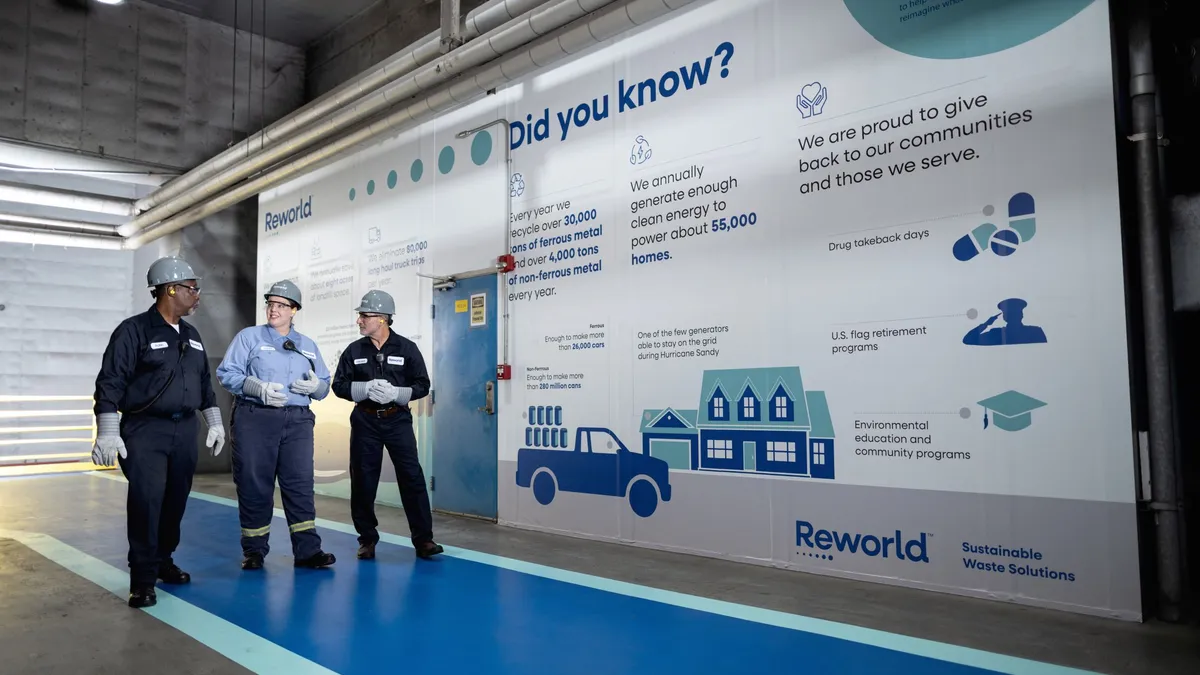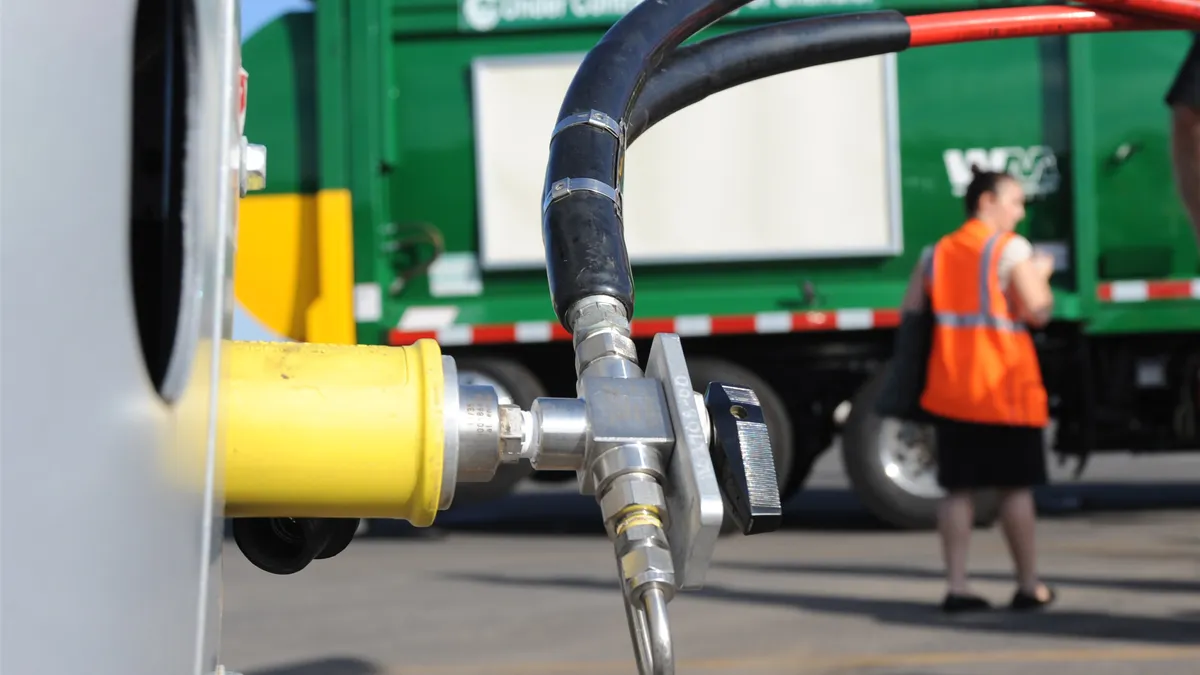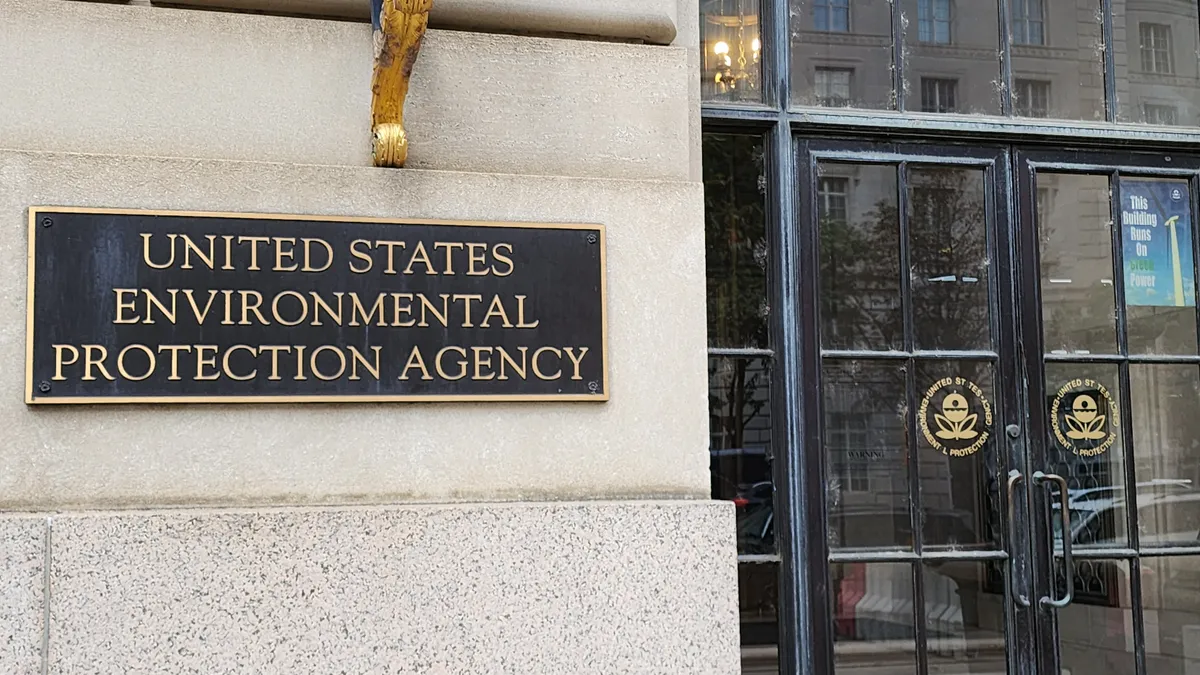UPDATE: March 18, 2020: Waste Management filed a notice with the Securities and Exchange Commission that it now anticipates receiving federal regulatory approval to acquire Advanced Disposal Services later than expected, putting the deal on track to close "mid to late second quarter 2020." The company cited the ongoing COVID-19 outbreak as a factor. This comes after executives reported on a Feb. 13 earnings call they were still confident in a late March approval.
Waste Management's biggest acquisition in decades is scheduled to close within months and activity to finalize a divestiture package is underway.
Given the antitrust scrutiny expected for the Texas giant's $4.9 billion deal to buy Advanced Disposal Services, both parties agreed to sell assets worth up to $200 million in annual revenue if needed. While Waste Management CEO Jim Fish's prediction that the deal could close even sooner than Q1 has since been walked back, the company reports all is copasetic.
"We continue to work with the Department of Justice and expect to close within the original 12 to 15-month timeline as we originally guided," spokesperson Janette Micelli told Waste Dive via email. "Everything is progressing as expected."
Advanced referred a request for comment to Waste Management.
Sources outside of the two companies indicate a multi-market divestiture package has been circulating since late last year. It's now considered possible that package could be worth more than the projected $200 million, but as of this month details were still not finalized. Competitors and customers are closely watching which assets in an expected four or more states will end up on that list.
Look to the north
The Department of Justice's (DOJ) two main areas of focus for judging market concentration have traditionally been disposal assets and "small container commercial waste collection." The agency does not comment on ongoing antitrust reviews and has made no public statements about where the process stands following a second request for information in July 2019. DOJ staff have likely been conducting in-depth research for months, per the agency's standard practice.
“They’re typically going to call a number of customers, they’re going to talk sometimes to competitors as well," said Eric Lewis, a former economist in DOJ's Antitrust Division and current assistant professor at Texas A&M University, adding that cooperation from the companies is also important. “They don’t want DOJ to get it wrong, so if they can get them good info from the get-go that really helps DOJ to evaluate things."
Lewis said beyond the initial research phase – which could involve outside consultants – DOJ economists and attorneys will also spend significant time evaluating what they've found and potentially following up on areas of concern.
For this deal, the DOJ has enlisted research assistance from at least one outside firm. Some local haulers, county staff and others in Wisconsin have also heard from agency staff multiple times since last fall.
Wisconsin has come up repeatedly as having some of the most attractive potential divestitures. A review of Waste Management and Advanced's respective footprints show each company owns considerable landfill assets in the state, with many around the Milwaukee area. The majority of Waste Management's landfills have at least a dozen years of estimated site life remaining (and some have much more), according to state data.
Both companies have multiple sites south of Milwaukee and across state lines into Illinois – including Advanced's Zion Landfill, which is slated for expansion. Their presence continues along Lake Michigan into the Chicago market, where each have multiple collection and transfer assets.
Northwest of Chicago, in between a pair of Waste Connections landfills, sits Advanced's Orchard Hills Landfill, which could also be expanded. While Ogle County board minutes indicate a new host agreement draft has been pending for months, the local solid waste director said he wasn't aware of any hold-up related to the acquisition.
Neighboring Michigan has also been mentioned, particularly the Detroit market. Waste Management owns numerous landfills in the area, while Advanced just has one, and each have a collection and transfer presence. Both also have a long list of disposal assets in Pennsylvania (Waste Management more than a dozen landfills, Advanced around half that) with multiple clustered west around Pittsburgh.
Finally, Atlanta, Georgia, where both companies own multiple nearby landfills, has also been described as a market to watch. Given how quickly Atlanta continues to grow, sources familiar with the region say it's also now becoming more viable to export waste into Alabama. Advanced picked up the Three Corners Regional Landfill from EC Waste in 2018 and has three more disposal sites around the Birmingham market, where Waste Management currently has one.
Industry figures continue to track these possibilities closely and discussion remains active about how things may unfold. David Biderman, executive director and CEO of the Solid Waste Association of North America, reports he has had "multiple conversations about the scope of the divestitures and their potential impact on certain markets" over the past week alone.
Beyond reviewing geographic factors such as distance between disposal assets and customer bases, DOJ also typically gauges consumer sentiment. Sources in these markets say they don't anticipate major changes, which tracks with research from the Connecticut-based MKM Quantitative Survey Group.
According to a survey of public sector customers and local haulers in some of the previously mentioned states, a majority of respondents said they believe "prices may go up as a result of the transaction." At the same time, a majority also said they "view the deal positively," citing the potential for improved service and technology offerings.
Approval is increasingly likely if the DOJ has been hearing similar feedback, but that doesn't mean finalizing it will be simple, according to sources.
Finding the viable buyer(s)
The reality that this deal could lead to "highly concentrated" local markets per DOJ metrics will bring heightened attention to the process of finding a viable buyer for divestitures, according to American Antitrust Institute President Diana Moss.
“That viable buyer has to step in, take over the assets and operate them as efficiently as possible to maintain the competitive discipline that was in the market before the merger," said Moss. “In highly concentrated markets, finding viable buyers who are going to reinject the lost competition is more difficult."
Many of the industry's largest players previously expressed openness to acquiring likely divestitures and some sources believe the situation still remains fluid.
Waste Connections, currently in the midst of a years-long period of growth through acquisition, has been raised as one of the most likely candidates given its limited presence in many of the expected divestiture markets. The company has reportedly been engaged in discussions, but did not respond to a request for comment about whether it remains interested.
Republic Services, which has previously left the door open to acquiring potential divestitures, confirmed it remains interested.
GFL Environmental, despite canceling IPO plans last fall and recently making two sizable acquisitions in Virginia and Michigan, is also still viewed as a viable possibility. CEO Patrick Dovigi declined to comment on his company's plans.
Given the high interest in this divestiture package, and seeming overlap challenges for Waste Connections in Illinois specifically, multiple sources now believe the deal may be resolved with more than one buyer (but likely no more than two). If so, antitrust experts say that could be a factor in why no package has been announced yet.
“If you parcel if off that just complicates it by potentially involving multiple buyers," said L. Pahl Zinn, an antitrust attorney at Dickinson Wright, citing the factor of different sale terms. “Typically, the preference for everybody involved is to find one buyer to handle it."
In a multiple buyer scenario, other names come into play.
Illinois-based Lakeshore Recycling Systems (LRS), which continues to rack up residential contract wins and bought its first landfill last year, is frequently said to be in the mix.
"We remain very interested in all assets that might come from the WM/ADS divestiture both in the Midwest and throughout the greater ADS platform," said LRS CEO Alan Handley via text.
Casella Waste Systems has entertained the idea before and did not rule it out.
"[W]e are interested in reviewing any divestitures that come out of the WM/ADSW merger in Pennsylvania, but we have not been involved in the process to date," wrote Vice President Joe Fusco via email.
FCC Environmental Services (the U.S. arm of a well-funded Spanish giant) also reportedly remains interested in acquisitions, including potential divestitures.
Private equity firms and regional private companies have also been raised as possibilities depending on how the situation develops. The final list of divestitures itself may evolve as well, with the potential for favorable sales terms on unrelated assets that could entice buyers into picking up any less attractive sites.
Waste Management is looking to sell off as little as possible and avoid giving competitors too much advantage in the years ahead, according to sources. The company is expected to have some discretion in its final choice, if DOJ signs off, and reaching at least a tentative agreement will likely be crucial before an official settlement can proceed.
“They now generally encourage, if not require, an upfront buyer be identified as part of the divestiture package," said Zinn. "One to ensure it goes smoothly and two to ensure that it’s going to be a buyer who is not a major market participant, but somebody who’s going to buy assets that are going to help make the market more competitive."


















